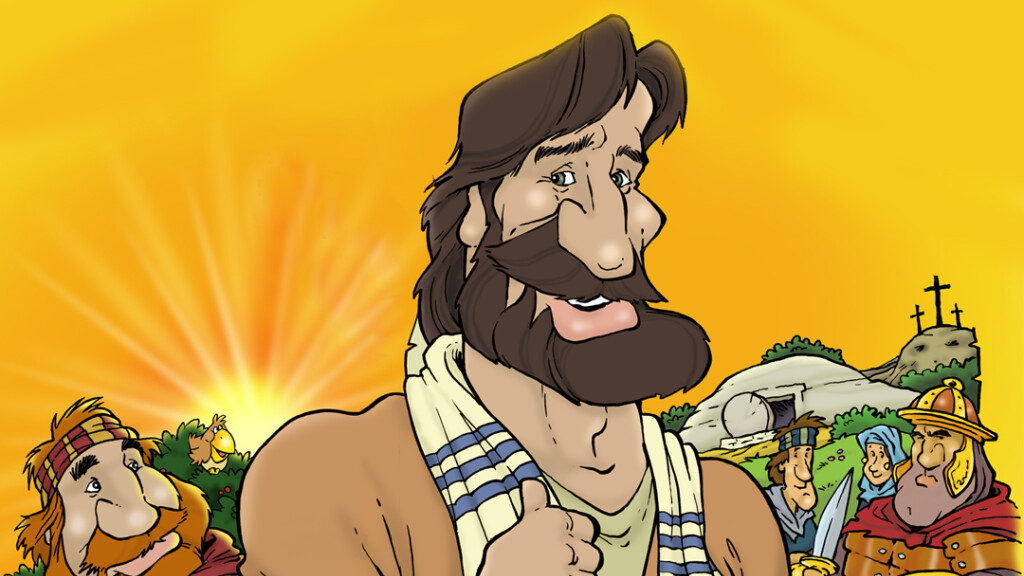Kids - For the Good
Haman's Wicked Plan - Week 3
November 16-17, 2019 |
In this four-week video series, kids will hear the whole dramatic story from the book of Esther that details the near annihilation of the Jewish people exiled in Persia. In all of the story’s ups and downs, God’s faithfulness is clear. In everything, he works for the good of those who love him and are called according to his purpose.
WORSHiP
BIBLE VERSE
“We know that in everything, God works for the good of those who love him," Romans 8:28a.
GROUP Q&A
- What was the name of the mean man King Xerxes hired to be second in command? (Haman) What was he like? (mean and loved power)
- Everyone was asked to bow down to Haman. Did everyone obey and bow to him? (No.) Who didn’t and why? (Mordecai didn’t because he didn’t like Haman, and he bowed to God.)
- To punish Mordecai for not bowing down, what did Haman do? (Tell the king a lie that the Jews didn’t obey the king’s laws, and trick him into signing a law to destroy all Jews.)
- When Esther heard the really bad news, she decided to go to the king, even though it was super risky. She believed that God could work for the good and save her people. Have you ever been put in a situation where you had to make the right choice, even though it was hard? Will you tell us about it? (Take responses from kids, leading with a quick example if needed.)
PARENT BIBLE STUDY
Read: Esther 3-4
God put Mordecai and Esther in the right place at the right time. First, Mordecai uncovered a conspiracy to kill the king, and ended up saving the king’s life. Then, Mordecai overheard Haman’s evil decree to annihilate the entire Jewish race, so he pleaded with Esther to use her position and influence to stop the destruction. It’s easy to look back at history and see how God used Mordecai and Esther. Sometimes we can look back in our own lives and see how God was at work. But in the moment, in the dark and ugly, whether we have dug ourselves into a pit or we’re stuck in someone else’s pit, it’s hard to look up and trust in God’s grace and mercy.
Mordecai and Esther faced a similar dilemma. They were living in a period of Israel’s history where God’s people were far away from his heart. They weren’t necessarily living as people of faith. It took the worst of the worst circumstances for Mordecai and Esther to acknowledge God’s presence and pray. Isn’t this so many of our stories? We live as if God doesn’t exist, and when our circumstances hit rock bottom and we have no other option, we finally face the truth that God is and has been near and present, even when we refused to believe it.
After hearing the news of Haman’s plan, Mordecai mourned and fasted for days. It’s the first time we get the slightest clue that he might have thought of God (Esther 4:1-3). Later, Esther did the same. She asked Mordecai to gather all the Jews in Susa and fast for three days and nights.
Mercy and grace are abundant in the story of Esther. Mercy and grace gave Esther favor in the eyes of the king. Mercy and grace allowed the king to read, at just the right time, that Mordecai had saved his life. Mercy and grace spared Israel from Haman’s wrath.
We can find God’s mercy and grace for us at our rock bottom, too, because God loves us. Paul tells us in Ephesians 2:4-5 that even while we were still dead, we were made alive in Christ because of God’s rich mercy and grace.
Whatever the cause of our darkness, may we cling to God’s promise - that even there, especially there, his grace and mercy come to give us life.
Can you think of times in your life when you didn’t acknowledge God’s presence until you hit rock bottom? What was your response?
How have you experience God’s grace and mercy in your darkest moments?





